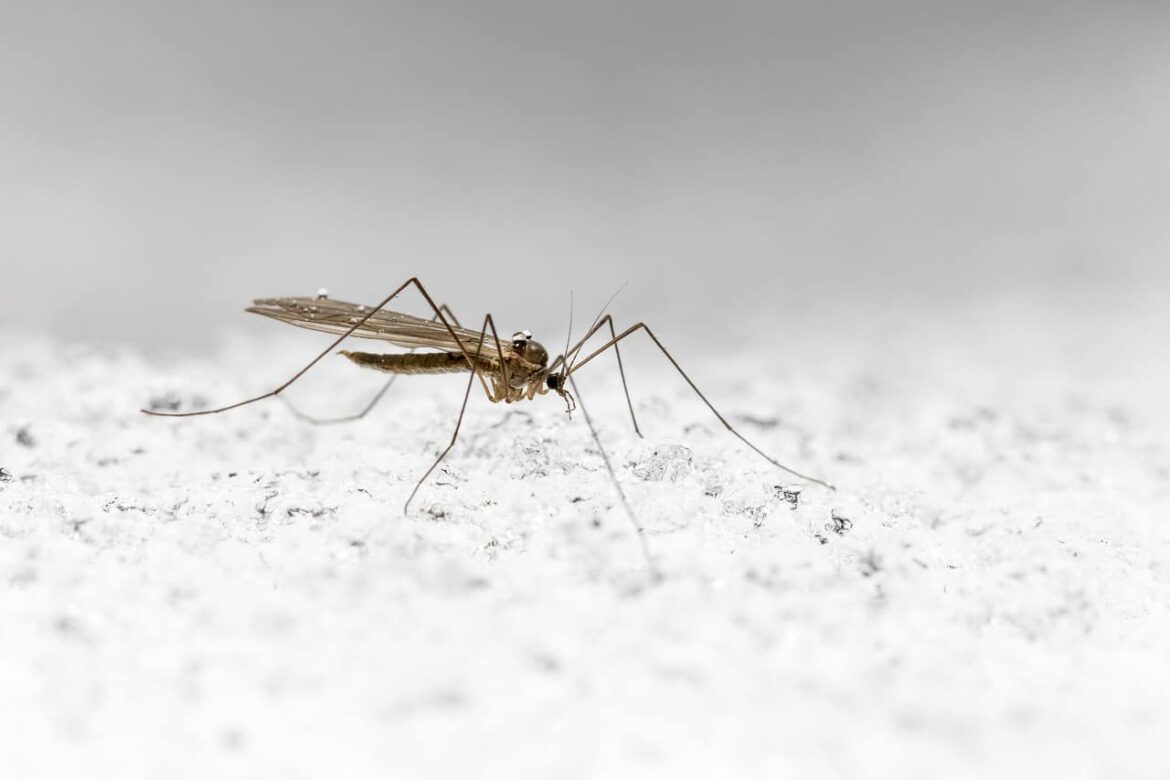894
Mosquitoes can survive in winter. Some species only do so in the form of offspring, others hibernate and some migrate.
Where are mosquitoes in winter
In winter, mosquitoes are rarely seen in our area – they survive the cold season in different ways and in different places.
- Many mosquito species overwinter as larvae or pupae in stagnant waters that do not freeze over completely. They remain in a state of torpor and halt their development until it gets warmer.
- Some mosquitoes lay eggs in damp areas in the fall. These eggs are cold-resistant and do not hatch until spring, when temperatures rise and it gets warmer again.
- Adult animals of some species overwinter in sheltered hiding places, such as caves, cellars, attics or even in houses. During this phase, they fall into a kind of hibernation in which their bodily functions are reduced to a minimum. If it gets warm enough in winter, e.g. due to a warm weather period, it may happen that individual mosquitoes become active again.
- In very rare cases, some mosquito species migrate to warmer regions. This behavior is more common among other insects, such as butterflies.
This is how mosquitoes adapt
Many insects have unusual adaptation properties to survive the winter.
- Many mosquito species that overwinter as adults or larvae produce a kind of endogenous “antifreeze” that lowers the freezing point of their body fluids. These include certain alcohols and sugars such as glycerin, which prevent them from freezing even when temperatures drop below zero degrees Celsius.
- The state that mosquitoes fall into is called diapause – a kind of “hibernation”. In this phase, they reduce their metabolism to a minimum and consume hardly any energy in order to survive the cold period. They remain inactive until conditions are favorable again, that is, until it gets warmer and more humid.
- The cold weather extends the life cycle of many mosquitoes by slowing their development. While mosquitoes develop in one to two weeks during the warm summer months, it often takes significantly longer in the spring for the eggs to hatch and the larvae to reach maturity.
- A cold winter can actually help to reduce the mosquito population the following year, as some eggs, larvae or overwintering mosquitoes may die. A mild winter, on the other hand, can lead to a stronger mosquito population in spring and summer, as more mosquitoes survive and reproduce.
- While many mosquito larvae or eggs survive the winter in our latitudes, mosquitoes in warmer areas live continuously. In tropical or subtropical regions, there is no winter rest, and mosquitoes remain active and reproduce continuously throughout the year.

